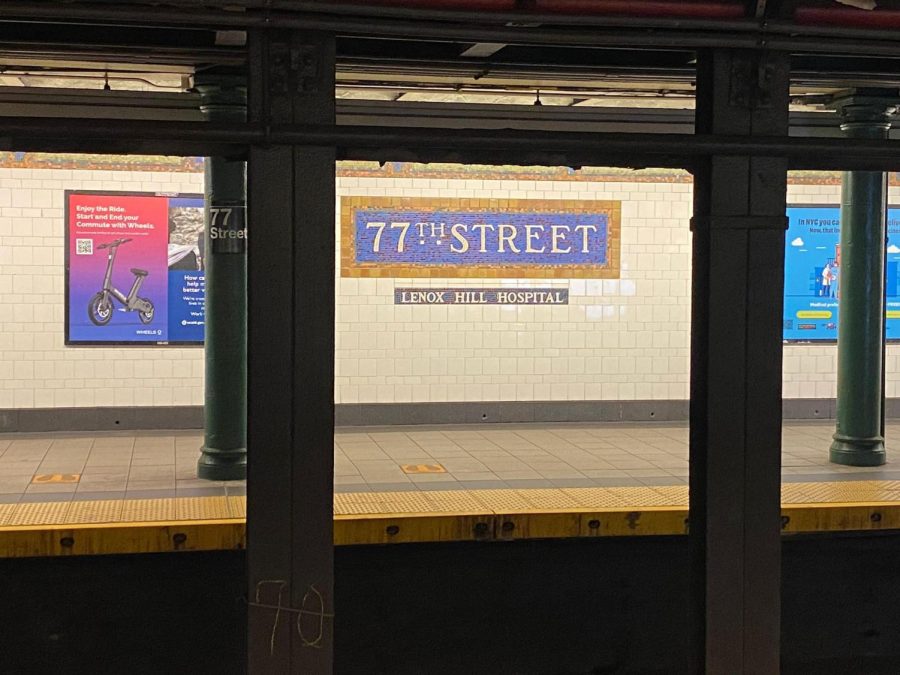Traveling Rams: Ramaz Commuters Express Outrage at New Schedule
“This new schedule for commuters is absolute narishkeit!” says David Gitelman ’22. For years, Ramaz has claimed they are accommodating towards commuters as an Open House campaign to attract non-city dwellers. However, many commuters at Ramaz would argue that this claim is far from the truth. “Ramaz does not care for commuters.” states Izzie Ottensoser ‘22. The administration claims that last year’s decision to make davening second period was to help commuters. Many times students who live in Manhattan will decide to show up late or skip davening on test days, giving an unfair advantage over commuters who cannot do this. First period class before davening will act as an incentive for city kids to show up on time, erasing that advantage over commuters. However, most commuters argue that not only does this not help them, it actively harms them more than it does city kids. “The thing about davening second period is that I take the bus from Great Neck so when davening was first period, if there was traffic and I was late, it was fine because I can catch up in davening. But now, if I’m late, I’m missing actual class time and learning that I can’t get back.” says Eliana Sobel ‘22. The administration assumes that the lateness problem among the student body is fixable and controlled by individual students. While simply “waking up or leaving earlier” can be an effective method of preventing latenesses for the Manhattan kids, it is not the case for commuters. For those who take the bus or the train, timing is completely out of their control.
“Ramaz changing the start and end times by 15 minutes was meant to help commuters, but all it really did was help city kids get home 15 minutes earlier. It had no effect on commuters at all. People keep telling me to just wake up earlier but I already get up at 6am plus it wouldn’t make a difference because regardless what time I wake up or school starts, the bus still comes at the same time because the school doesn’t communicate the correct times to the bus company. Also, even if my bus did come 15 minutes later, there is still traffic so it wouldn’t make a difference.”- Brayden Serphos ‘22. Ozzie Kramer ‘22 says, “The school assumes that everybody’s ability to come on time is in their control, and that might be the case for city kids, but it is not true for commuters. Everything that contributes to my lateness is not in my control so it is absurd I should be punished for that.” The departure and arrival time for the bus is decided by the bus company, not the students. Students waking up or leaving the house earlier would have no effect on arrival time because it is simply not in their control. Even so, some commuters wake up as early as 5:30am. Many students believe waking up earlier than that would be unhealthy and ridiculous. Additionally, traffic is a big factor in lateness for bus takers, something completely out of both the students and the bus company’s control. While the lateness policies still affect city kids, the punishment for lateness seems cruel and unusual for commuters whose inability to come on time isn’t their fault. “I find it honestly offensive when I get lateness emails for being 15 minutes late. Like I don’t commute over an hour just to be punished for a 15 minute lateness that was out of my control. Me being late isn’t the same as a Manhattan kid being late and it’s unfair we get the same punishment.”- Mia Denti ‘22. While it might be true for someone who lives on the Upper East Side and walks to school to be on time by leaving the house earlier, it doesn’t work like that for commuters who travel over an hour to get to school and aren’t in control of the factors that contribute to their latenesses.
The general negativity from commuters surrounding the new schedule makes one wonder why the administration keeps making these changes for the sake of commuters when it only harms them. “It’s like the administration keeps saying they make these changes for non-city kids but like I don’t think the administration has ever talked to any real commuters about it because not a single commuter I’ve talked to has said they liked the new schedule. They keep making these decisions to help commuters but they’ve never taken the time to ask actual commuters what we really want so they just end up making things worse for us.”- Mati Finkelstein ‘22.
In addition, the second period davening isn’t even an effective method at preventing latenesses. Many students still skip davening, they just opt to skip first period classes as well. While it is understandable that, as a Jewish institution, we should require davening, it is not necessary to enforce strict and unfair rules to those who clearly have no desire to participate. Jessica Moskovits ‘22 says, “Those who want to daven, show up to davening and those who clearly don’t want to daven, don’t show up. As long as davening isn’t disrupted, I don’t really see the need for such strict policies.”



